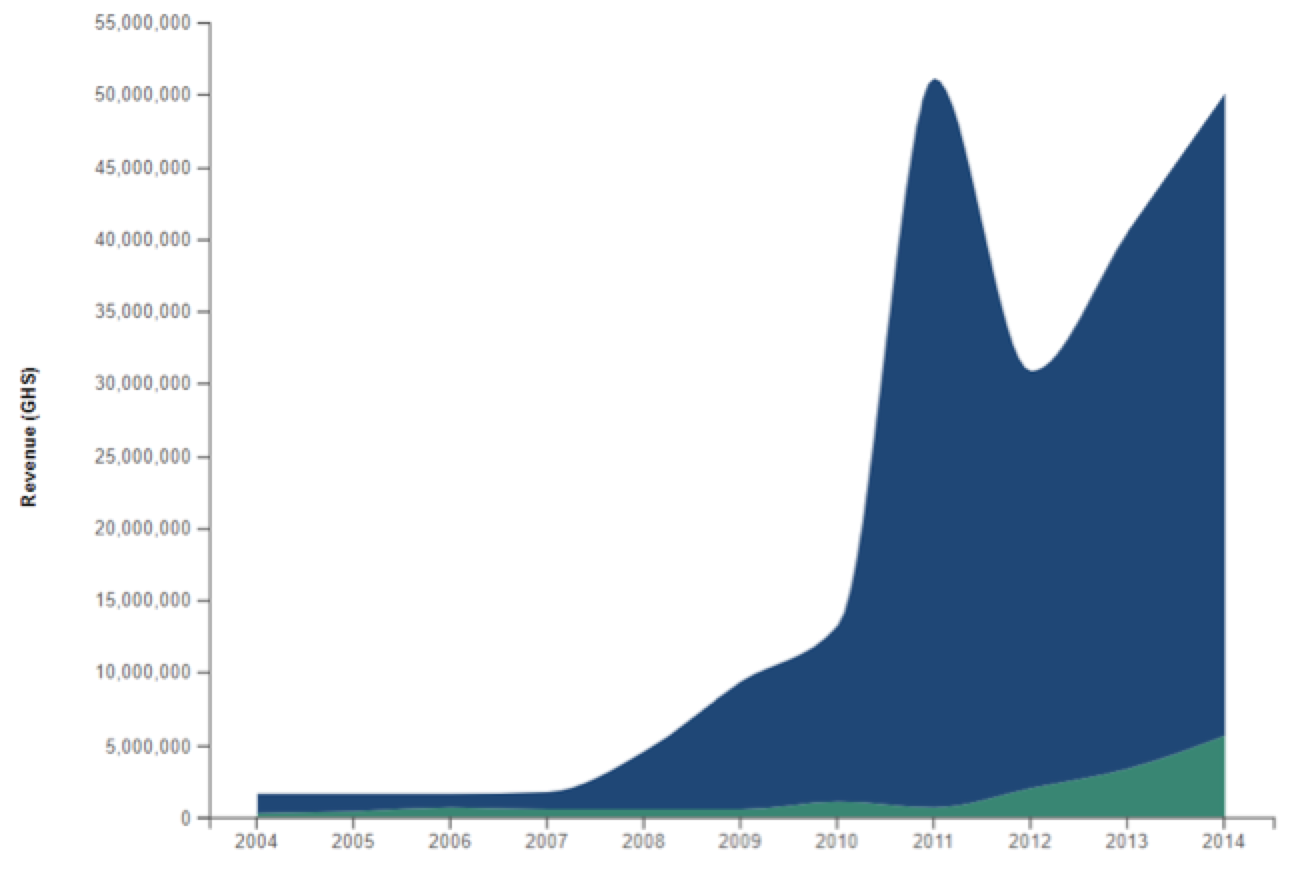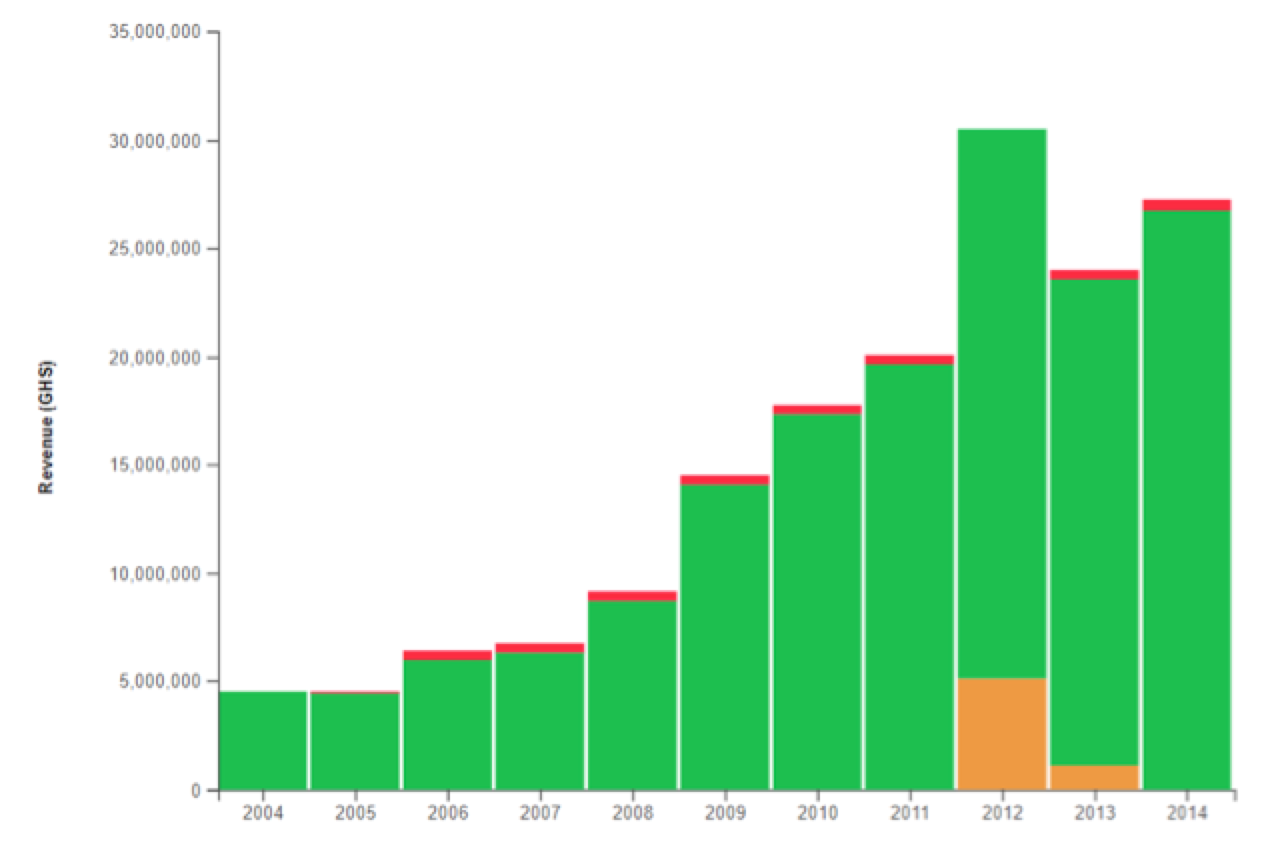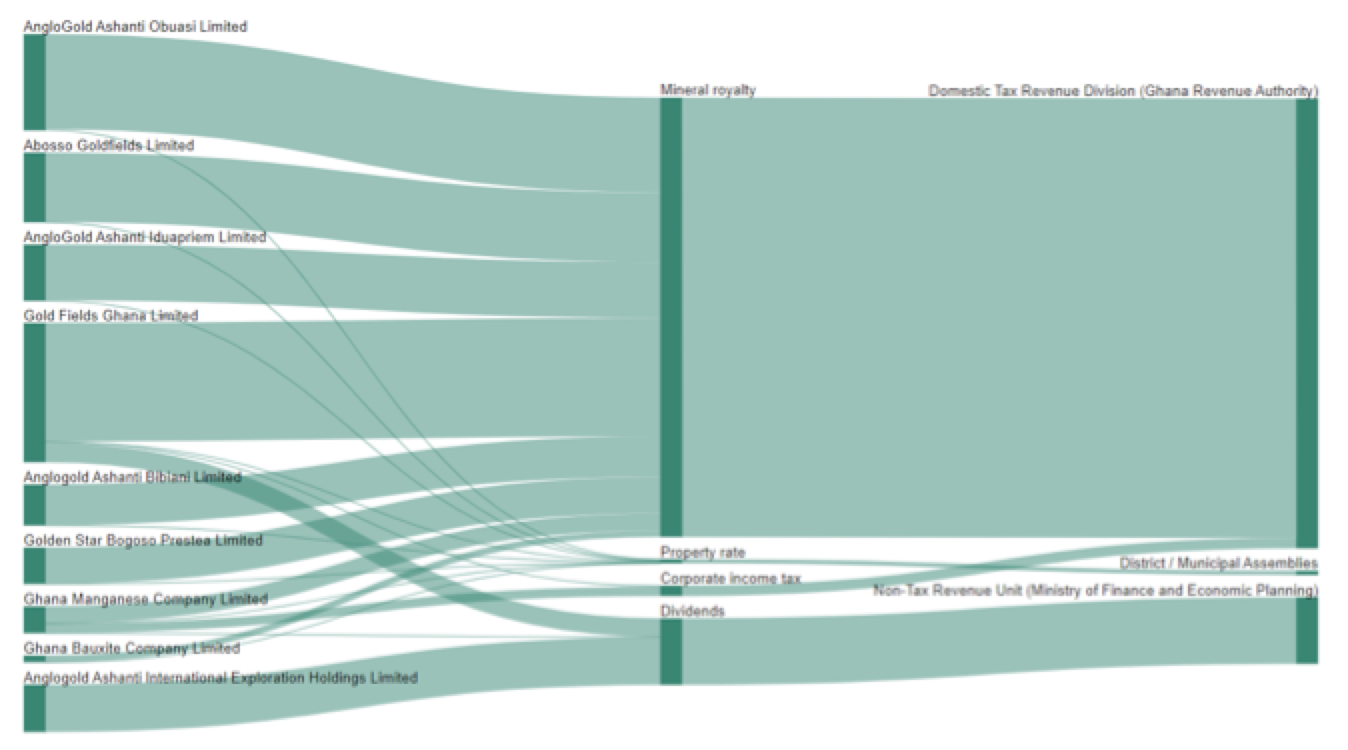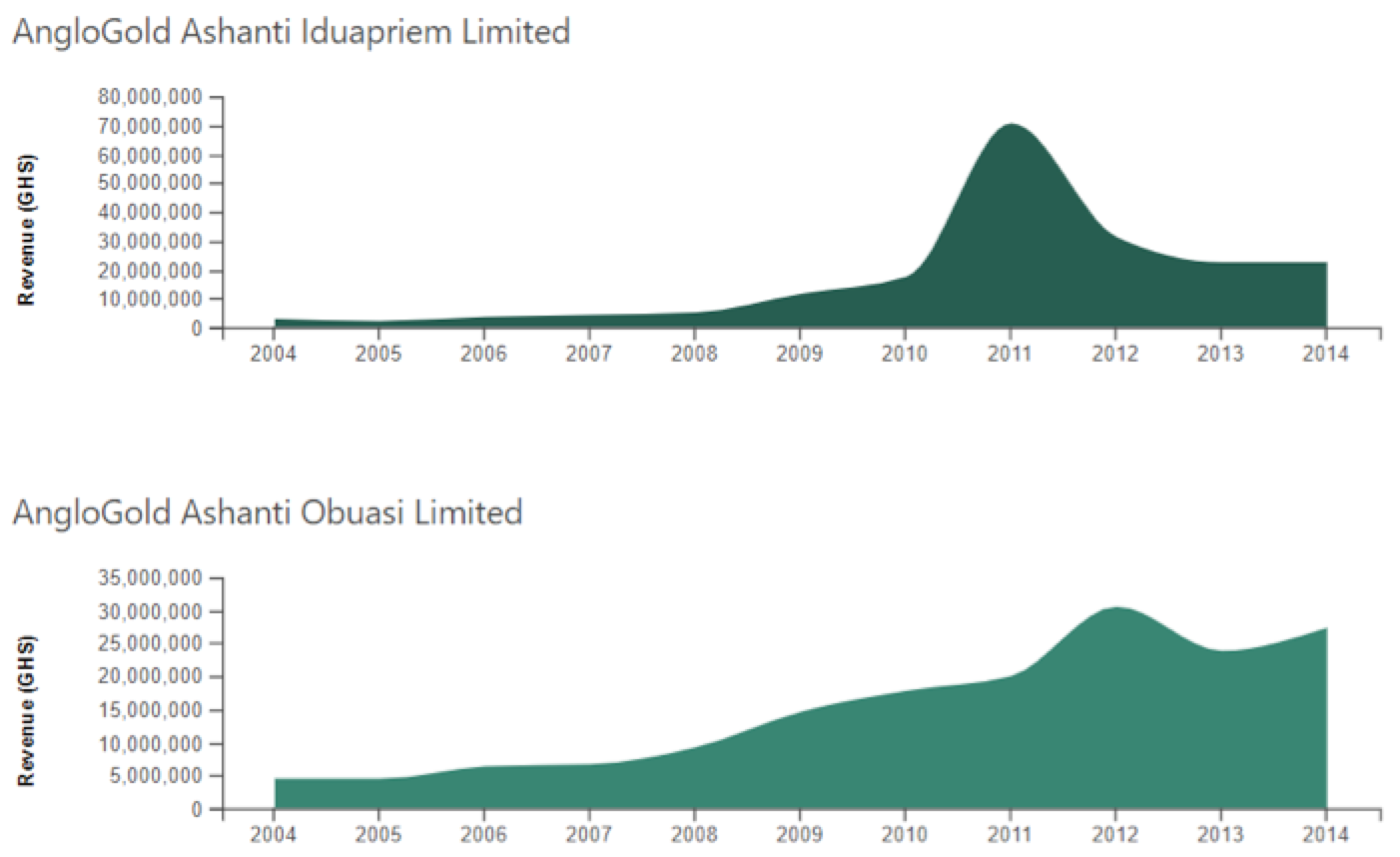
All Hands On the Ghana Extractive Industries Transparency Initiative’s New Data-Rich Dashboard
Ghana, a country rich in aluminium, bauxite, gold, manganese, oil and gas, joined the global Extractive Industries Transparency Initiative (EITI) in 2003 to promote good governance in the extractives sector. EITI is a multi-stakeholder effort comprising government agencies, civil society actors, and extractive companies. Ghana’s implementation of the EITI has meaningfully promoted accountability in the extractive sector and beyond. The national-level Ghana Extractive Industries Transparency Initiative (GHEITI) has produced annual reconciliation reports, covering fiscal payments by extractive companies to the government, for the mining sector since 2004 and for the oil and gas sector since 2011. Ghana has remained at the forefront of promoting transparency in the extractives sector as is evident in the recently launched Ghana Petroleum Register.
With support from the Natural Resource Governance Institute (NRGI), GHEITI has recently relaunched its data dashboard to increase awareness of extractive revenues in Ghana. The dashboard highlights company payments and identifies which government institutions received extractives revenue. Civil society actors, journalists and others will be able to leverage this easily accessed revenue data in their fight against corruption in Ghana’s extractives sector.
In 2015 and 2016 NRGI and GHEITI had partnered to develop one of the first data visualization tools for an EITI multi-stakeholder group using EITI data. The site was a result of the Catalyzing Open Data in Extractives (CODEX) project, through which NRGI developed data-use strategies in Ghana to engage a diversity of stakeholders. Following the official publication of the dashboard in March 2016 GHEITI requested the update of the dashboard to include enhanced visualizations with the latest EITI data.
The developed dashboard is in line with EITI’s open data policy and GHEITI’s own open data policy as it increases awareness and provides details of Ghana’s extractive revenues through a freely accessible web platform, which in turn stimulates debate on the prudent extraction and management of Ghana’s natural resources. The platform makes GHEITI’s annual reports accessible through explorable and interactive visualizations with the ultimate aim of stimulating public engagement and debate. Users can download datasets in open format, which allows for the reuse of data.
The dashboard contains interactive visualizations of company and government revenue flows, and allows users to select a company or reporting year:
Comparative commodity revenues for bauxite and manganese 
AngloGold Ashanti Obuasi revenues by revenue type 
Company and government revenue flows 
Company revenue comparisons
The majority of the visualizations are automatically pulled from data stored in the ResourceData online repository using that site’s open application programming interface (API). ResourceData, managed by NRGI, harvests data from the global EITI data repository. Any newly imported data will automatically refresh and update the data visualizations, thereby relieving GHEITI of the need for an in-house technical expert.
GHEITI staff are planning various workshop opportunities to make presentations of the dashboard, specifically outlining how it can be utilized by various stakeholders to monitor extractives revenue.
Edna Osei is an NRGI Africa associate. Charles Young is a technical open data consultant. Yan Oak is an independent technical consultant.
